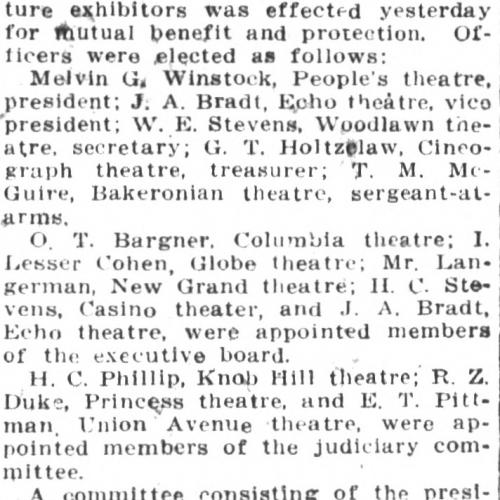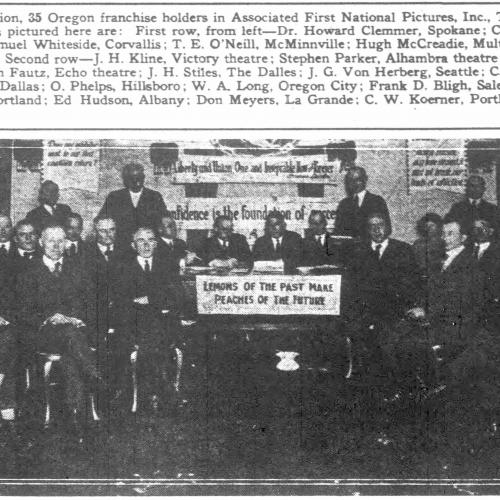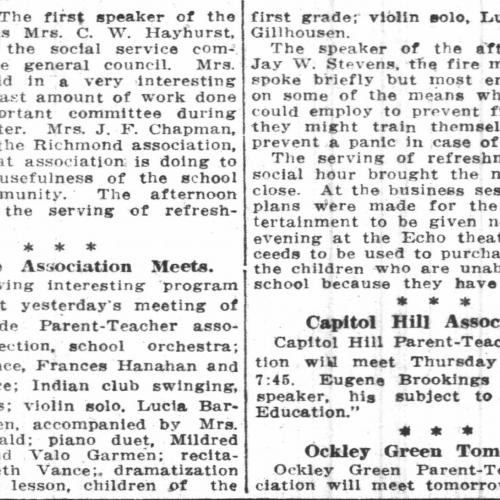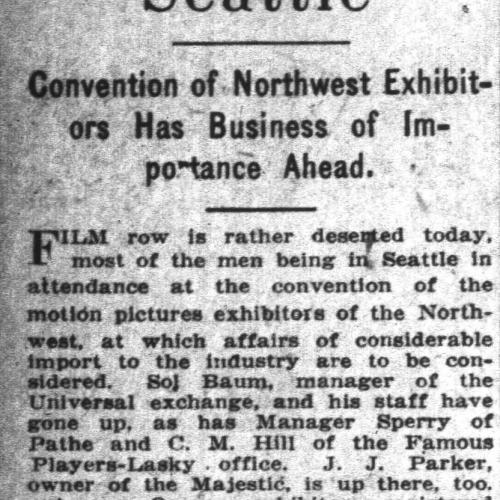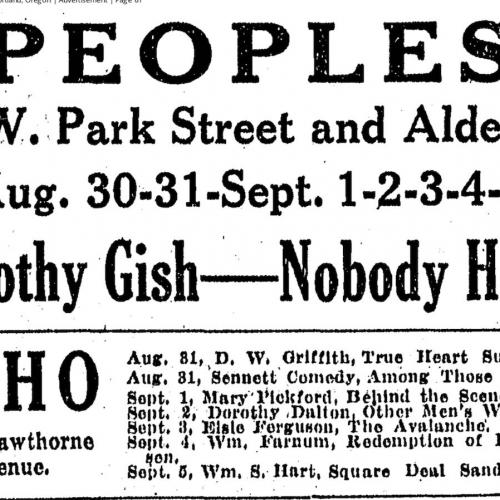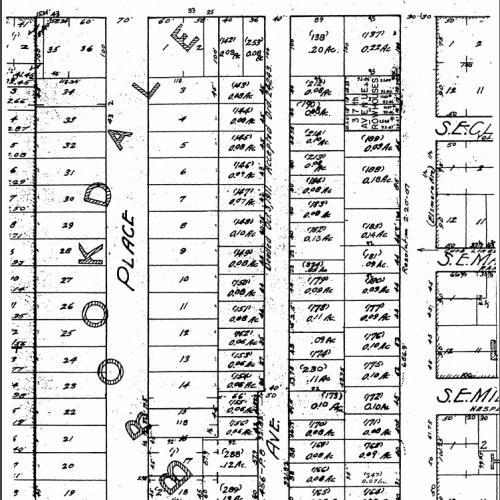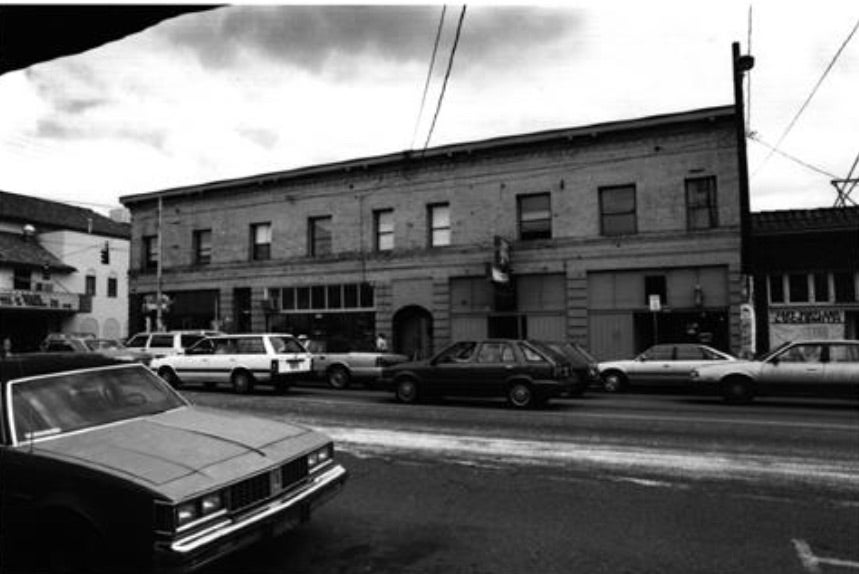
The Frances Building and Echo Theatre are located on the corner of SE Hawthorne Boulevard and SE 37th Avenue at 3628 Hawthorne Boulevard in Portland, Oregon. The Echo Theatre opened in 1910, showing only silent movies and was able to seat 350 people. The Echo Theatre was initially managed by Joseph A. Bradt, who rented the building from Rudolph Christman. The two-story Frances Building was built to connect to the one-story Echo Theatre building in 1911 and was named after Christman’s wife, Frances. This was the first commercial structure built in the area.
Bradt was not new to the movie theater business. He owned the Liberty Theater on Sixth Avenue and had previously owned the Rose City Theater, also on Sixth Avenue. Bradt worked as a manager for the Echo Theatre until 1921. He then became manager for the People Theater and then went into the automobile business (5). Edward Fautz took over as manager after Bradt left.
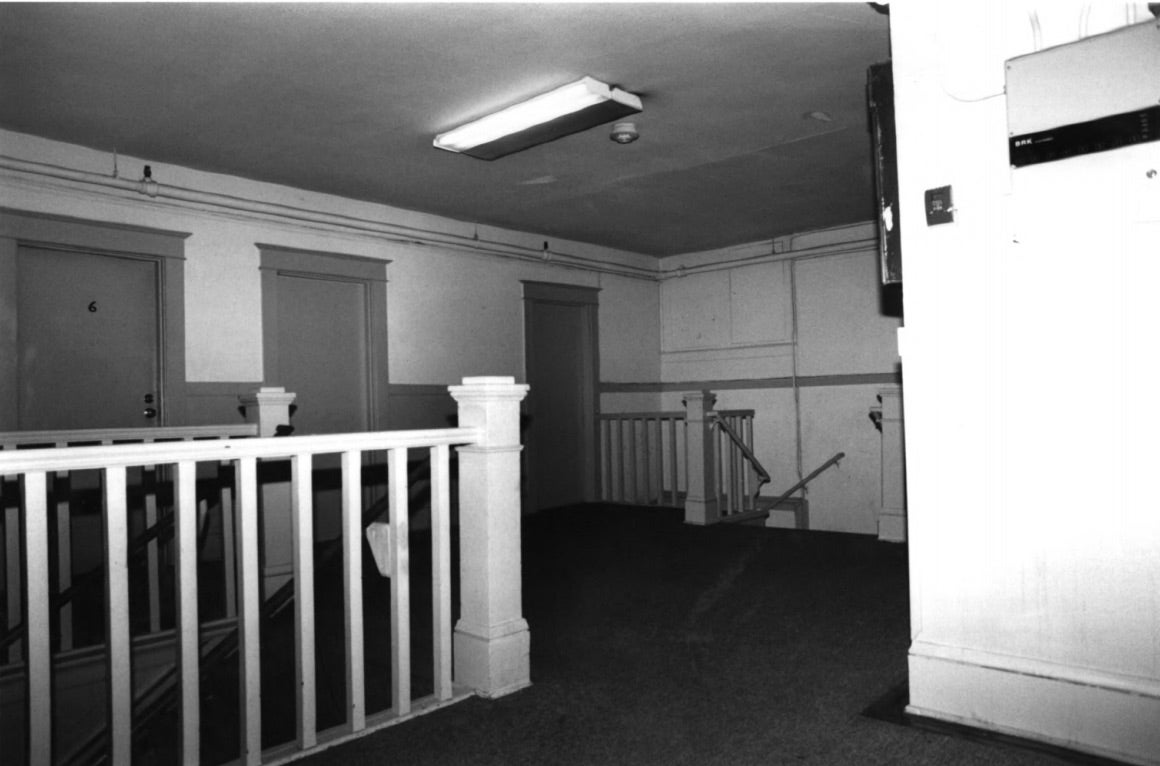
Retail stores, apartments, and a public hall were also located in the Frances Building. A drug store and dry goods store were located in the building for over fifty years. Immediately across from the Echo Theatre entrance was a candy store. Additionally, there was a barbershop, apartments, and a public hall which was used for social events and meetings. The second floor of the building was used for an apartment for the theater’s manager and/or film operator. In 1930, the Frances Building became Frances Apartments, which included anywhere from four and nine apartments.
The Echo Theatre used newspaper articles and ads for promotion material. In order to draw larger crowds, one ad from The Oregonian in 1919 states, “The whole week will be devoted to a drive for better pictures in thousands of the better theaters, big and small, all over America” and “As in the past the proof is written large in showings at more theatres,
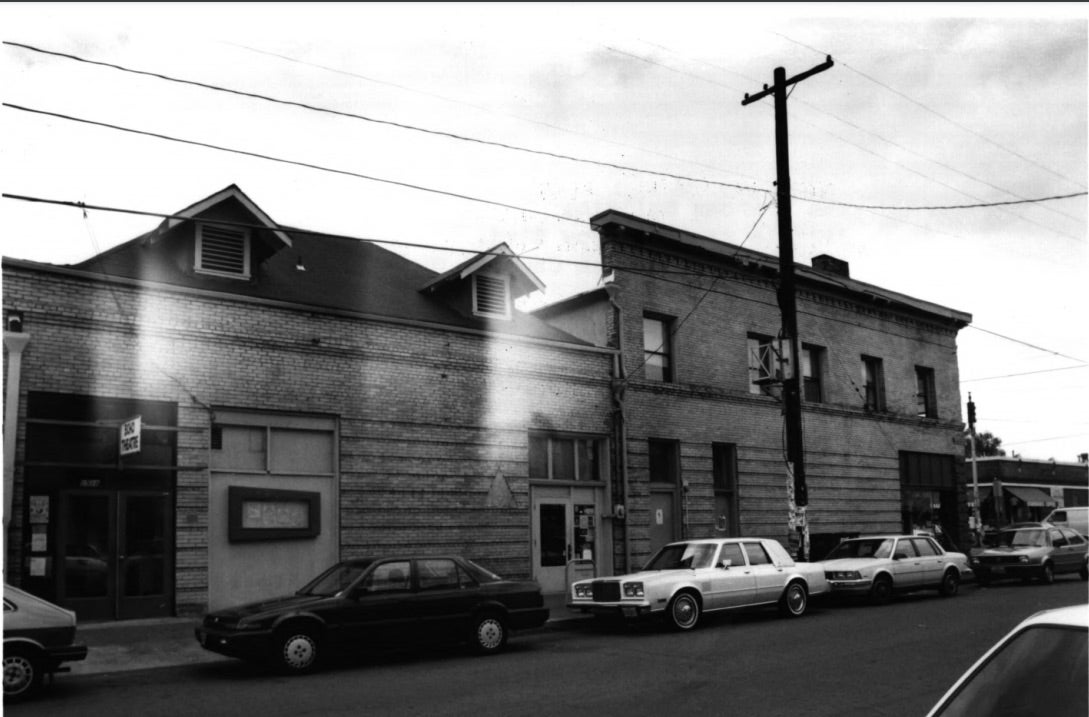
more frequent attendance by more people, and the making of that better theatre in every community the magnet that draws the people as surely as the moon draws the tides” (9). The theater also participated in contests to draw customers. One contest being a poem contest open to children with a $300 cash prize. “In addition to this it was thought that it would stimulate wider interest if theater passes could be awarded to a great number of pupils in the schools who while not getting cash prizes, were deemed worthy of honorable mention” (10). Mr. Bradt donated theater passes as prizes.
In March 1922, Echo participated in Paramount’s 10th Anniversary celebration. Paramount seemed to resemble the best of the best in movies. Multiple Oregon theaters celebrated this anniversary. Newspaper articles inferred if your theater wasn’t showing Paramount movies, it wasn’t a great theater. Ads stated, “If it’s a Paramount Picture it’s the best show in town” (3). The theater space was also used to hold benefits (12).
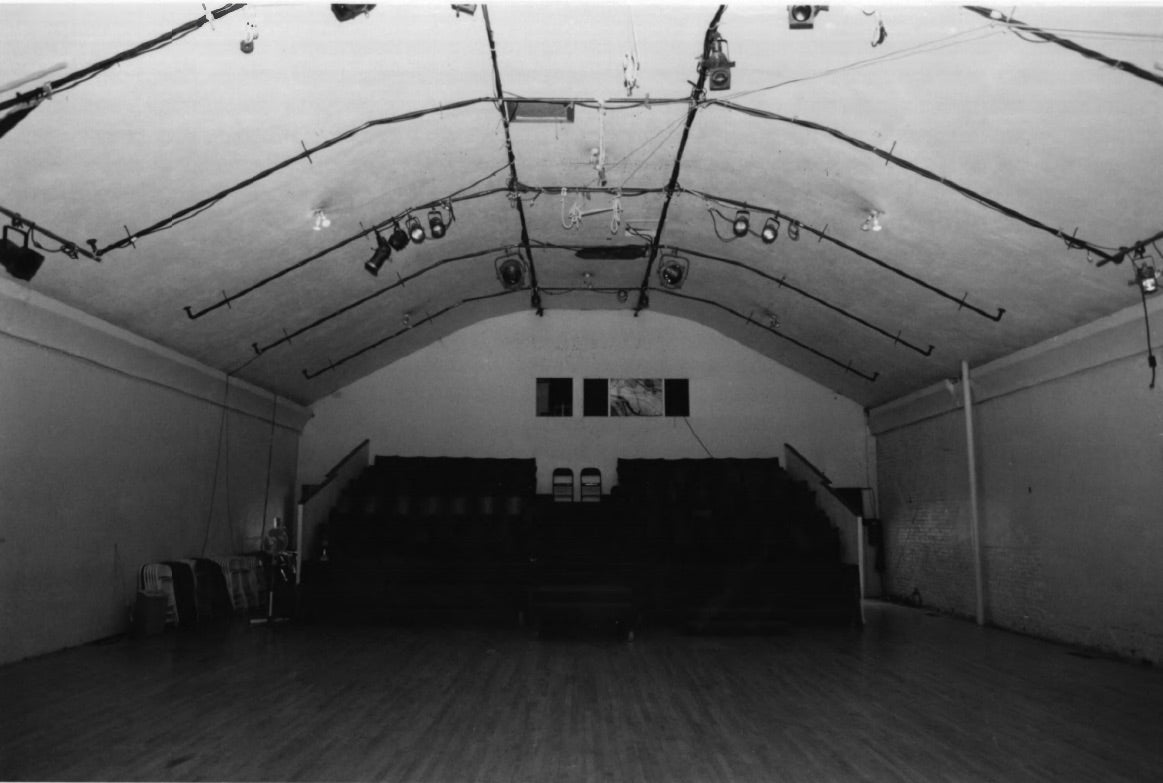
The Echo Theatre was very successful and a novelty in its time showing only silent movies. In 1927, due to its success, Christman partnered with Arthur Otis to form the Christman and Otis Development Company. With this partnership, they built the Bagdad Theater directly across the street from the Echo Theatre, which showed movies with sound. Because of this new and exciting theater opening, the Echo closed in 1927 and became warehouse space used for storage from 1929 to 1954. Plumbing and Electric Supply occupied the space from 1969 until 1973, when Republic Enterprises, another plumbing company, took over. In 1984, the current occupant, Echo Theater, took residence. The theater is now used for performing arts, live shows, parties, and dance classes.
